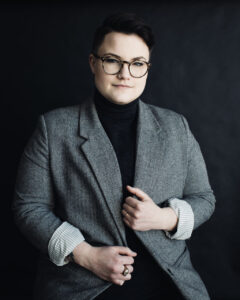As the field of psychology continues to evolve, the Iowa Psychological Association seeks to evolve as well to meet the ongoing needs of its members. One of the biggest changes IPA is making this year is shifting from a quarterly published newsletter, The Iowa Psychologist (TIP), to a blog housed in the members-only section of the IPA website. This shift in medium coincides with a shift in editorial responsibilities as well. Dr. Stewart Ehly has served as the editor of TIP since 2011 and published his final edition last month with the Winter 2020 issue. It seems most fitting to start off the Iowa Psychologist Blog with a tribute to Stewart. Thank you to everyone who contributed, and additional comments and stories are welcome in the comments here!
Phil Laughlin
Dear Stuart,
I am wishing you Godspeed as you join us fellow retirees. You and I go back to the mid-80’s and you’ve been a precious colleague all that time. You were a tremendous help to me several times throughout that period when I felt overburdened with this or that responsibility. You stuck with IPA in the mid-90’s when the membership voted to change the dues structure resulting in a loss of approximately 100 academic members. Your continuing presence was an immeasurable gift to Iowa psychology in general and IPA in particular.
Your lasting gift to IPA is the replacement you found to manage the next iteration of its publication communication vehicle. Word has it that she will be an outstanding editor.
[Editorial note: the potential of the next editor is yet to be determined but to be safe all expectations should remain reasonable.]
Sam Graham
Great job Stewart! Thanks for all you have done!
Sam
Tom Ottavi, Ph.D. IPA President 2011
From my time on the PA executive board from 2007 to 2012 I want to recognize contributions of Dr. Ehly to all IPA membership. He provided wonderful professional guidance and leadership around The Iowa Psychologist (TIP) (and other roles) for so many years. Often with limited assistance, he would generate fresh ideas and approaches to advance TIP quality. IPA has benefitted from having TIP as an active communication point for the association and ways to showcase IPA activities and scholarship around Iowa over the years. IPA has deep gratitude for Dr. Ehly’s creativity and willingness to be the “hub” of coordinating such professional communications and assisting with vital association evolution.
Thank you for being so dependable and giving to IPA.
Benge Tallman, IPA Past President
I’ve known Stewart since my graduate school days at the University of Iowa and I feel very lucky to have had him as a professor and continued to collaborate with him as an IPA member. I fondly remember sitting in Stewart’s History and Systems of Psychology course and appreciating his vast knowledge base and ability to make the content interesting and meaningful. More recently, I’ve had the opportunity to work with Stewart as the IPA president in writing a quarterly Presidential address for the TIP. Stewart was always easy to work with and always gracious with providing me a few extra days to submit my article. I want to thank Stewart for his contributions to IPA and the TIP, and also for being a wonderful professor, mentor, and colleague.
Nicole Keedy, IPA President Elect
I am so grateful for Stewart’s reliable and thoughtful efforts as the TIP editor over the past decade. He encouraged meaningful contributions and he was flexible in accepting changes as needed. He helped us stay connected and informed about IPA through the diverse contributions he organized into our newsletter each quarter. Many thanks to Stewart for his leadership and generosity in this role.
Diane Shelton
Stu Ehly is the last in a short list of TIP editors who have generously volunteered for this important communication tool over the many years I have been a member of IPA. As an academician, Stu arguably did not benefit from IPA to the same degree as those who have had to battle legislators and insurance companies over the years. But, like my mentor, Professor Ursula Delworth, and other psychologists at The University of Iowa, Stu valued, promoted, and lived the scientist-practitioner model.
Over the years, I have submitted several articles to TIP, and I have always found the editors to be most helpful and forgiving. Stu was no exception. In the past, I have edited much smaller newsletters for other organizations, and I know first hand that soliciting, receiving, and editing articles is no small task.
I also have another reason to be eternally grateful to Stu. Back in 1990, an outside member of my dissertation committee backed out, setting my time table into a chaotic mess. Being a commuting grad student, who had also needed to change major professor in my last year, this was more turmoil than I needed at that point in my life. I went to Stu, a professor I barely knew, but knew was a real stand up guy by virtue of his reputation, and asked if he would be willing to step in and be on my committee at the very last minute. Without hesitation, Stu agreed. I will never forget his warmth, generosity, and helpfulness. At the time, I would have not thought it an exaggeration to say he saved my life; surely, as former doctoral students, those of you reading this can relate.
So, Stu, enjoy your retirement, be it from TIP only, or from your position at the University. You deserve it and more!
Don Damsteegt
Whenever I think of Stewart Ehly, I remember his vigilant presence at every IPA meeting, seeking to interview presenters and keeping his eye out for other potential authors. He has performed a very valuable service to IPA for many years. Thank you Stewart!
Katie Kopp, new blog editor
I am extremely grateful to have received a warm hand off from Dr. Ehly. While it’s intimidating to take over editorial responsibility from someone who has done such an excellent job managing the TIP, soliciting articles, editing submissions, and holding presidents to publication deadlines, I hope to do what I can to usher IPA into our new era of electronic record. Thank you again Stewart and while I hope you enjoy retirement I also hope you contribute to the blog and offer (gentle) suggestions to your replacement as we forge ahead.
Thank you to all who have made it all the way to the end of the first IPA blog entry. Please reach out to KatieKoppPhD@gmail.com if you would like to contribute to the blog or have ideas for articles or recurring features.

 In August 2023, the IPA Executive Council approved an exciting initiative to refresh IPA’s logo, branding, and website. The Marketing Consultant Workgroup began regular meetings and issued a Request for Proposal to find marketing services focused on enhancing branding and revamping the website. The project was divided into two phases: 1) redesigning the IPA logo and branding, and 2) revamping the IPA website. The workgroup envisioned the new branding to reflect IPA’s commitment to serving the mental health needs of Iowans, supporting Iowa psychologists, building networks and communities, and advocating for better mental health access and services.
In August 2023, the IPA Executive Council approved an exciting initiative to refresh IPA’s logo, branding, and website. The Marketing Consultant Workgroup began regular meetings and issued a Request for Proposal to find marketing services focused on enhancing branding and revamping the website. The project was divided into two phases: 1) redesigning the IPA logo and branding, and 2) revamping the IPA website. The workgroup envisioned the new branding to reflect IPA’s commitment to serving the mental health needs of Iowans, supporting Iowa psychologists, building networks and communities, and advocating for better mental health access and services.







 Dr. JoAnna Romero Cartaya, IPA’s Federal Advocacy Coordinator (FAC), was one of three APA psychologists honored as an APA Advocacy Champion during the APA Advocacy Summit on March 14, 2021. Her expertise as an advocate for federal legislation serves IPA members, and psychologists in general, immensely. Among her many accomplishments as our FAC, the following efforts were highlighted during the summit:
Dr. JoAnna Romero Cartaya, IPA’s Federal Advocacy Coordinator (FAC), was one of three APA psychologists honored as an APA Advocacy Champion during the APA Advocacy Summit on March 14, 2021. Her expertise as an advocate for federal legislation serves IPA members, and psychologists in general, immensely. Among her many accomplishments as our FAC, the following efforts were highlighted during the summit:
 Dr. Neef had the following remarks: Thank you so much for the Michele Greiner ECP Award. I didn’t have the pleasure of knowing Dr. Greiner, but I’m aware she was special to many of you. I’ve heard she was vibrant, an excellent mentor, passionate about bringing ECPs to Iowa, and skilled at cultivating community amongst professionals in our field, so it is truly an honor to receive an award in her name. When Benge emailed me about this award, I was having a week to which many ECPs can likely relate. I had a newborn baby and was embarking on starting a practice with my business partner Dr. Mark Poeppe. I was being pulled in a million different directions and felt I wasn’t doing much of anything well. The notification of this award came at the most opportune time, and I was grateful for the validation from my peers that I wasn’t a complete failure! I have appreciated the support and community IPA and IPF have offered me since I moved back to the Des Moines area from Chicago in 2016. Thank you to Suzanne Zilber and my IPA colleagues for granting me this award, and congratulations to the other awardees!
Dr. Neef had the following remarks: Thank you so much for the Michele Greiner ECP Award. I didn’t have the pleasure of knowing Dr. Greiner, but I’m aware she was special to many of you. I’ve heard she was vibrant, an excellent mentor, passionate about bringing ECPs to Iowa, and skilled at cultivating community amongst professionals in our field, so it is truly an honor to receive an award in her name. When Benge emailed me about this award, I was having a week to which many ECPs can likely relate. I had a newborn baby and was embarking on starting a practice with my business partner Dr. Mark Poeppe. I was being pulled in a million different directions and felt I wasn’t doing much of anything well. The notification of this award came at the most opportune time, and I was grateful for the validation from my peers that I wasn’t a complete failure! I have appreciated the support and community IPA and IPF have offered me since I moved back to the Des Moines area from Chicago in 2016. Thank you to Suzanne Zilber and my IPA colleagues for granting me this award, and congratulations to the other awardees! Max accepted his award and shared his remarks: Thank you so much for honoring me with this award. I want to recognize that I am receiving this award on stolen Lakota, Dakota, Mesqwaki, and Ioway peoples. We must acknowledge the stolen land that we stand on through land declarations like this, in addition to connecting with organizations that focus on Native/Indigenous liberation, such as the Great Plans Action Society, because Native and Indigenous liberation is connected to all liberation.
Max accepted his award and shared his remarks: Thank you so much for honoring me with this award. I want to recognize that I am receiving this award on stolen Lakota, Dakota, Mesqwaki, and Ioway peoples. We must acknowledge the stolen land that we stand on through land declarations like this, in addition to connecting with organizations that focus on Native/Indigenous liberation, such as the Great Plans Action Society, because Native and Indigenous liberation is connected to all liberation. Dear Executive Council of the Iowa Psychological Association,
Dear Executive Council of the Iowa Psychological Association,

 I wanted to introduce myself and say a bit about my role in the IPA. I have been a member of IPA since I joined as a student, under the encouragement of my major professor, Dr. Norm Scott. During that time, I have been so grateful for the community IPA has provided.
I wanted to introduce myself and say a bit about my role in the IPA. I have been a member of IPA since I joined as a student, under the encouragement of my major professor, Dr. Norm Scott. During that time, I have been so grateful for the community IPA has provided. Like Scott, my goal is to best represent members’ concerns, wishes and goals. I am a 3rd year rep filling a vacancy created when Dr. Joy Goins-Fernandez assumed another leadership role for IPA.
Like Scott, my goal is to best represent members’ concerns, wishes and goals. I am a 3rd year rep filling a vacancy created when Dr. Joy Goins-Fernandez assumed another leadership role for IPA.




 My experiences as an Army psychologist were not all quite this dramatic. Serving in a combat zone (twice – I went back for more in 2012) was the best job I ever had and one that I don’t ever want to do again, but I will be forever grateful for the opportunity. Our work is usually behind closed doors and we rarely get to talk about it publicly. But if you ever find someone in Hollywood wanting to tell your story, take it!
My experiences as an Army psychologist were not all quite this dramatic. Serving in a combat zone (twice – I went back for more in 2012) was the best job I ever had and one that I don’t ever want to do again, but I will be forever grateful for the opportunity. Our work is usually behind closed doors and we rarely get to talk about it publicly. But if you ever find someone in Hollywood wanting to tell your story, take it!